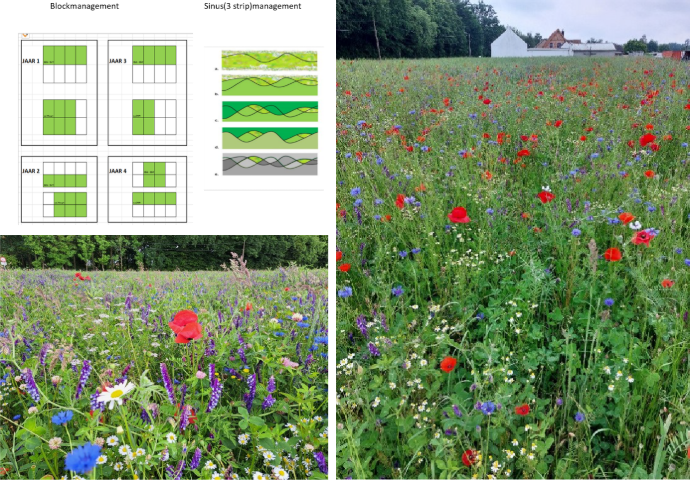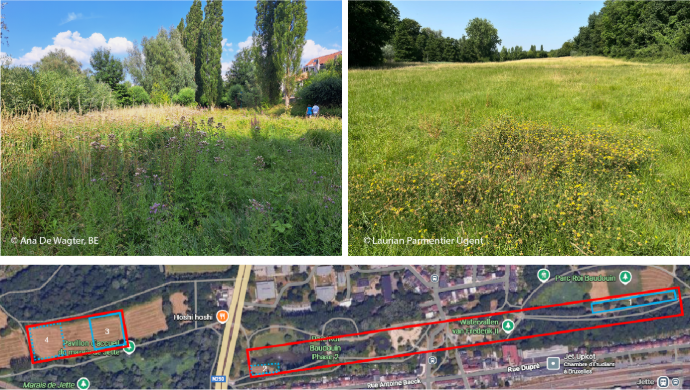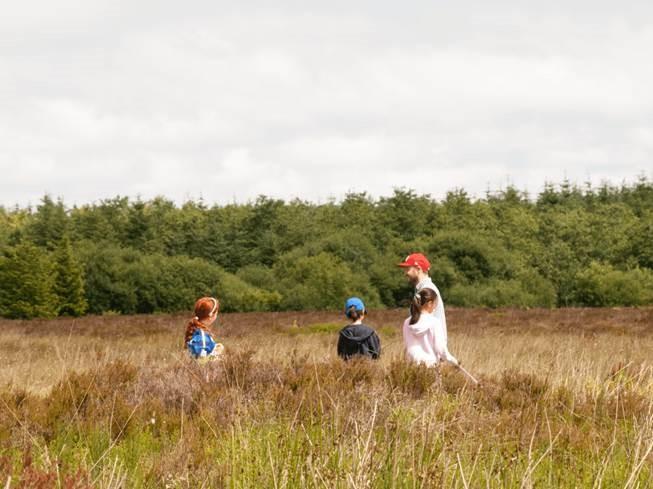Living Labs
Each living laboratory will include at least two pilot sites: site A, where the usual techniques are maintained, and site B, where techniques aimed at increasing the number of pollinators are tested. This configuration allows direct comparison between the two sites, enabling us to monitor the impact of the techniques.
Living Labs : Netherlands
1. FRL
Location : Fryslân
Nº Site: 3 or 4
Type of protocol: Scientific
Landscape approach: green spaces; ecological corridor; blue/green infrastructure
2. Middelburg
Location: the former island of Walcheren
Nº Sites: 3
Type of protocol: Diopsis autonomous insect cameras
Landscape approach: Connecting excysting green areas, parks and waterways trough ecological maintained roadsides


Living Labs: France
1. CD62
Location: Pas-de-Calais
Nº sites: 5
Type of protocol: Scientific/basic + cameras
Landscape approach: Semi-rural areas with urban, crops and grasslands nearby / ecological corridors
Living Labs: Belgium
1. PWF
Location: Nieuwerkerken / Oudenaarde
Nº Sites: 2
Type of protocol: experimental sinus- + block mowing – scientific approach
Landscape approach: strengthening landscape connectivity with farmers (flower fields/- margins, botanical grassland, hedgerows, ...)
2. BE
Location: park called “Roi Baudoin” (Fase 1; 2 and 3)
Nº Site: 4 (1 in F1; 1 in F2 and 2 in F3)
Type of protocol: Scientific
Landscape approach: located in a Natura 2000 area,
sites 1&2: Linear meadows bordered by a frequently used path, followed by a wooded area, and on the other side by a wetland (the Molenbeek Valley pond).Sites 3&4 : Large grassland surrounded by woodland, located in a nature reserve and bordered by a pond.
3. Flanders
Locations: Nieuwerkerken and Oudenaarde
Number of plots: 14
Protocol: Scientific
Landscape approach: enhancing landscape connectivity in agricultural areas through the implementation of agri-environmental measures by farmers more


Living Labs: Ireland
1. Ireland
Location: Ballyhoura
Nº Site: 1-2
Type of protocol: citizen science
Landscape approach: perennial flower margins and semi-natural grasslands
Living Labs: Germany
1. SUKW
Location: Bremen
Nº Site: 2
Type of protocol: scientific
Landscape approach: grassland and ditch margins in the urban fringe around Bremen

